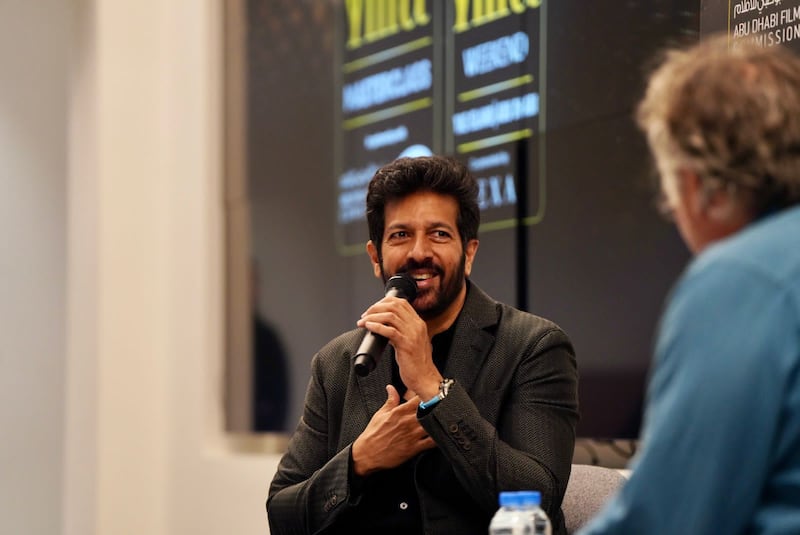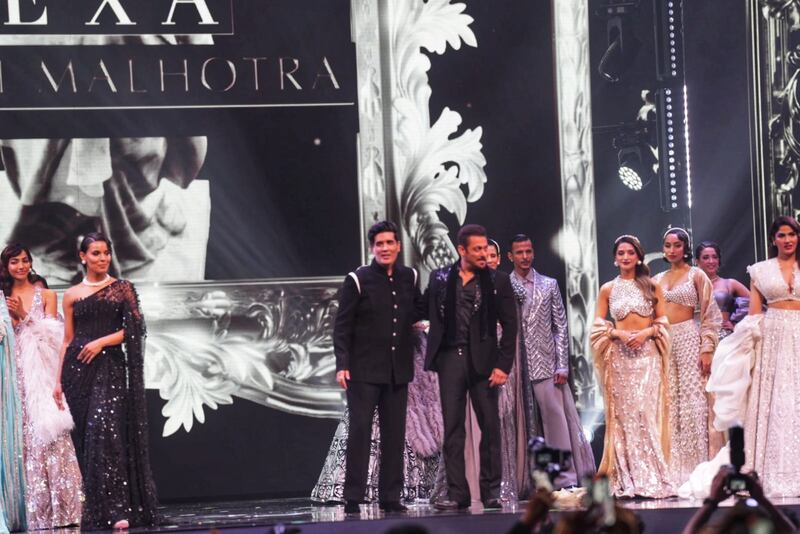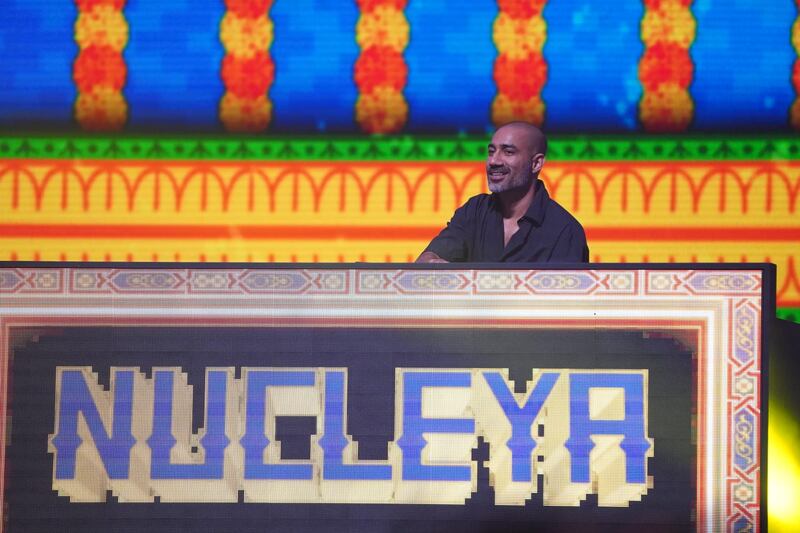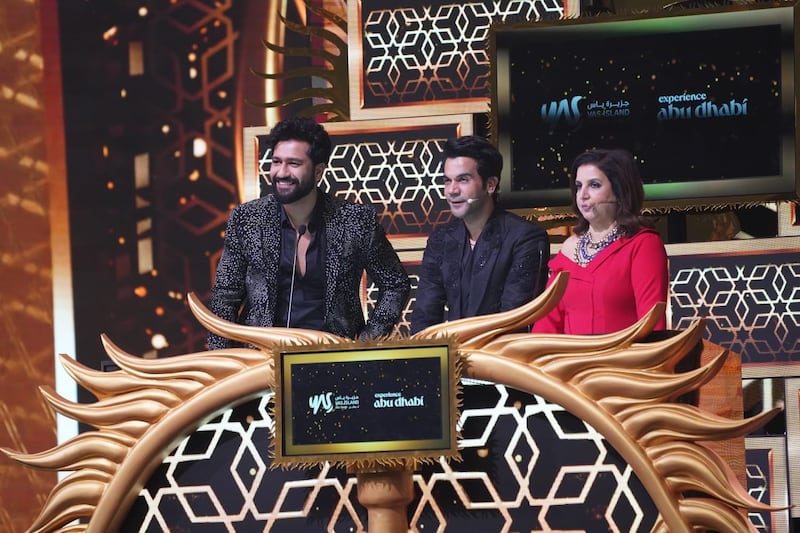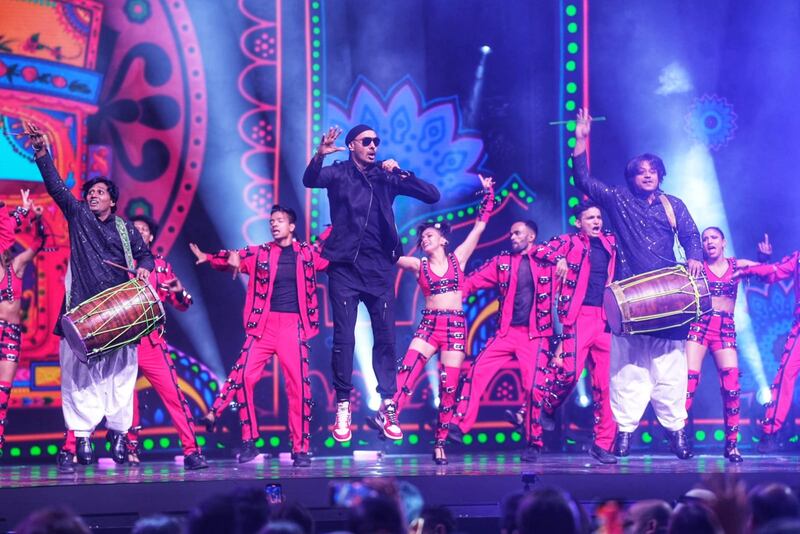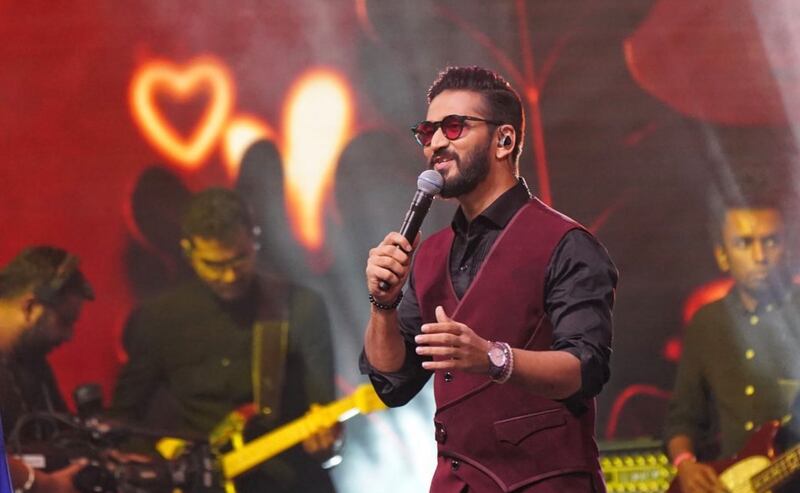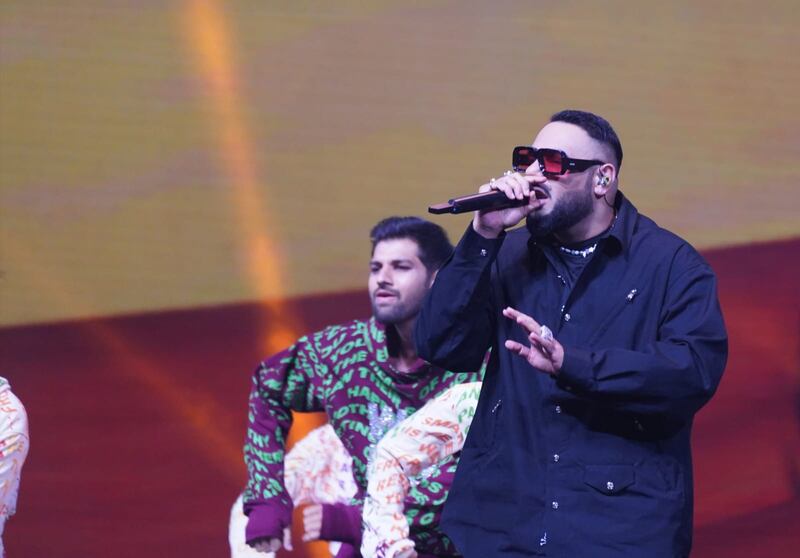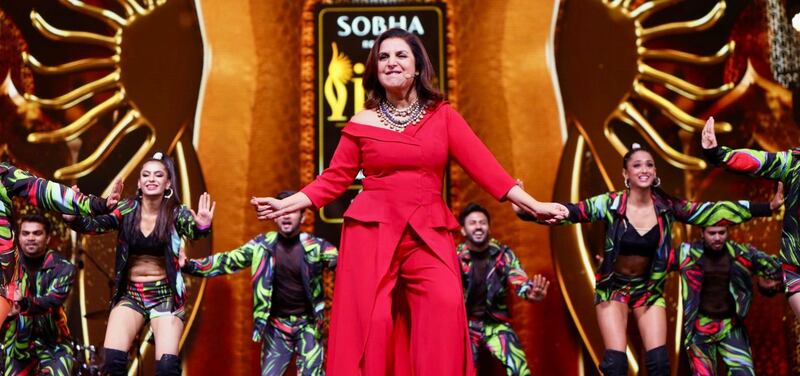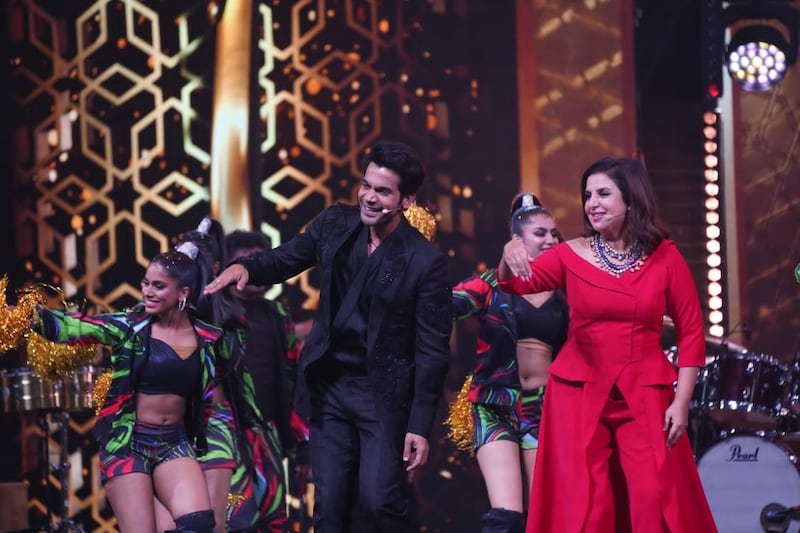Before establishing himself as one of the foremost directors in Bollywood, Kabir Khan was a young documentarian who sought to break into mainstream cinema in India.
The transition wouldn’t happen without struggle.
“When I started on that journey, a lot of people said: ‘Are you sure you don’t want to go through some sort of training?’,” Khan said during an masterclass held as part of the International Indian Film Academy Awards at the Yas Creative Hub.
“I had done my master's, but people said it had been more geared towards documentaries. But isn’t a story a story? Ultimately, it’s about connecting with people.”

Khan had already worked on a handful of documentaries, including as a cinematographer for the 1996 Gautam Ghosh documentary Beyond the Himalayas and The Forgotten Army in 1999, which Khan directed. He wrote the script for his debut fiction feature Kabul Express, which revolved around his experiences as a documentarian working in Afghanistan, but he couldn’t find a production company to make it.
The film he had in mind went against the grain of Bollywood traditions. It did not revolve around a love story, nor did it feature any songs. Khan went from one production company to another, pitching the script and hearing the same reaction: the story was impressive, but it would be hard to market.
After a year, Khan received a phone call from Yash Raj Films.
Khan initially thought it was a prank. Yash Raj Films was one of the biggest production companies in India and was known for making romantic films. Why would it be interested in making a film about Indian journalists in Afghanistan?
“I got a phone call saying that [director] Aditya Chopra wanted to meet with me,” Khan said.
“There used to be a successful TV show in those days called MTV Bakra, which was about pranking people. I thought people knew I was going through this, and somebody was pranking me. I went [to the meeting] half expecting [host] Cyrus Broacha to jump out of the bushes and say 'Bakra'.”
But the meeting was genuine, and Khan walked into the conference room to find Chopra waiting for him, cleaning his glasses with the edge of his shirt.
“He looked at me and said ‘Kabir, I’ve read your script and it’s great. When can we do this?’ And that’s it,” Khan said.
While pitching Kabul Express was a struggle, making the film would bring a whole host of other challenges. Khan was keen on shooting the film in Afghanistan but faced opposition from several groups, including the Taliban.
“This was in the end of 2005,” he said. “At that point in time, it looked like the Taliban were over. Now in retrospect, when you look back, that was the beginning of their resurgence. The first two weeks of our filming in Afghanistan, there were three suicide bombings.”
To make matters more difficult, Khan received a call from the Indian ambassador to Afghanistan, who said death threats over the film had been confirmed by intelligence agencies.
Khan was told the Taliban sent five people to target the film's production. “They were not happy with us sending out the signal that things were so normal in Afghanistan, that Bollywood was coming to shoot a film,” he said.
Filming stopped for some time and the stars of Kabul Express – including John Abraham and Arshad Warsi – had to leave the country.
“But then John and Arshad stood their ground, came back and we completed filming in the face of the Taliban,” Khan said. “We were not talking about an underworld don giving us threats. They were one of the biggest terrorist organisations.”
Khan initially wrote the screenplay thinking a more experienced writer would then take it on and polish it. He asked Chopra who would be hired to work on Kabul Express. “He said he wanted to make it exactly how it was written,” Khan said. “So, I became a writer.”
The experience would mark the beginning of Khan’s ambition to write his own films.
“Writing has become a very integral part of my process,” Khan said. “I’ve realised that I could never work on a screenplay that’s not written by me. Even if somebody gave me an idea, which happened with Bajrangi Bhaijaan, which came as a story from V Vijayendra Prasad – I realised the screenplay had to be mine. That journey of spending six, seven months isolated somewhere just penning away is an integral part.”
While Khan says a script is never really complete until a film is made, he can usually tell when a screenplay is close to completion. “It’s only then that I know I’m on to something,” he said.
Khan’s beginnings as a documentarian are evident in the political nature of many of his films. His latest release, 83, revolves around the Indian national cricket team’s victory in the 1983 World Cup. Even though it was a sports film, Khan said that for Indians, 83 resonated on a political and patriotic level.
“There’s a difference nationalism and patriotism,” Khan said. “At no point in the film does anyone stand up and say, ‘Long live the motherland.' But it’s the most patriotic film you could see. [The national team] did it because they believed we could do it. They believed that India can be number one in the world stage.”
When asked about his long-standing professional relationship with Bollywood star Salman Khan, with whom the director has worked on films including the 2012 action thriller Ek Tha Tiger and the 2017 war drama Tubelight, he said the actor had a determination and swagger that was inimitable.
“He is so secure in his stardom,” the director said. “You’re not Salman Khan for no reason. He is very generous with people taking the scene. It’s all about working with different actors and approaching them according to what they are capable of.”
The director also spoke about the importance of cross-cultural collaborations on screen. Though there have been several Bollywood productions in the UAE, he said there should be more work between India and the Middle East, with stories relevant to people in both regions.
“I think we must do that,” he said. “Especially between Abu Dhabi and India, there’s such love for each other’s works. We must definitely explore possibilities of working with each other’s talents.”
